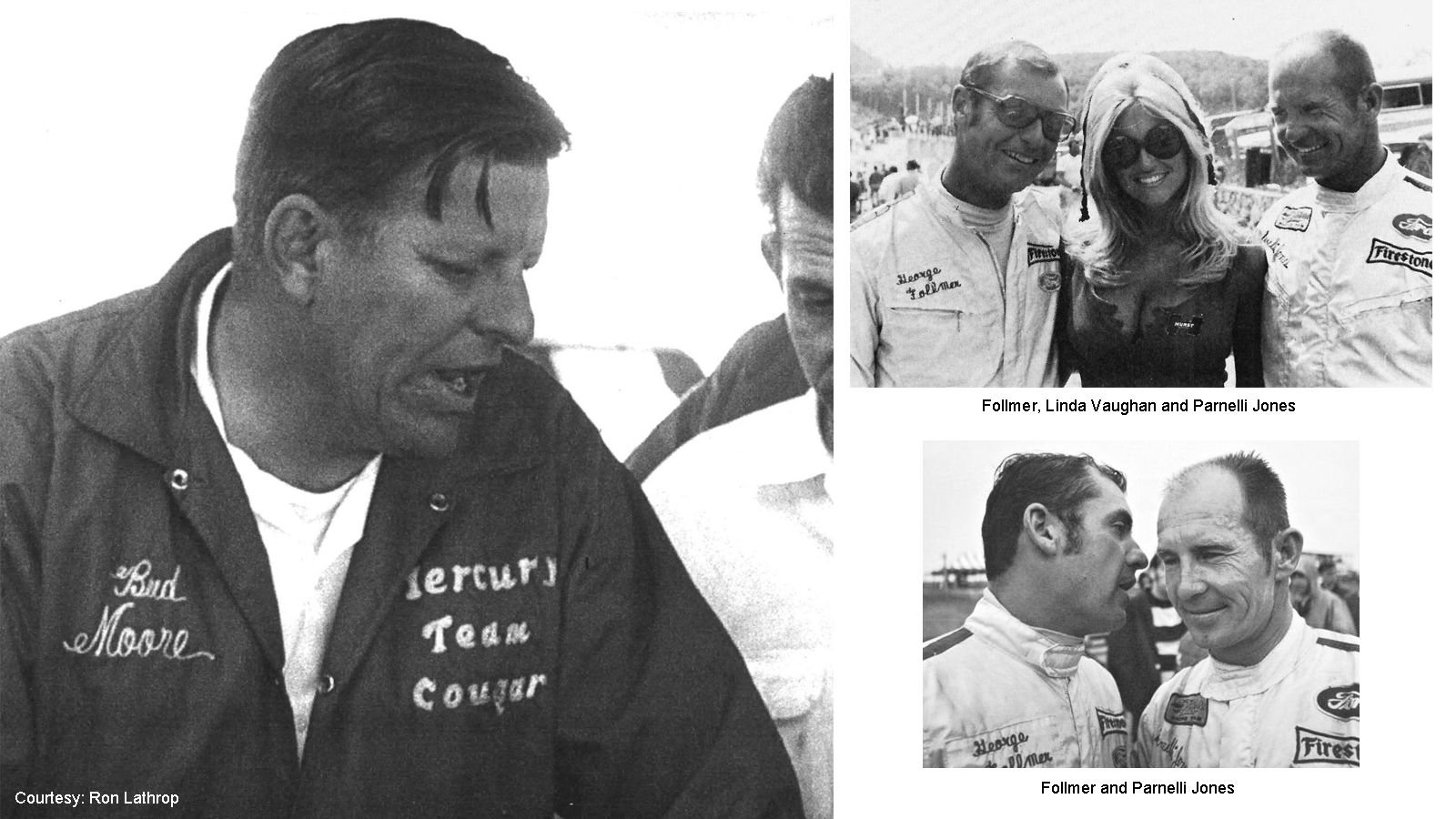Classic Racing Mustang- Follmer 1969 Boss 302
George Follmer drove on Sunday, Joe Public bought it on Monday.










1. Time to Get Serious
An Alfa-Romeo won the very first SCCA Trans-Am race in 1966. A Dodge Dart came in second overall but first in the Over 2.0-Liter class. Ford would go on to win the Over 2.0 Liter Manufacturers' Championship that year. Ford again took home the Over 2.0 Liter trophy in 1967 with Carroll Shelby’s Terlingua Racing Team notchback Mustangs. But 1968 was a different story with the Penske Racing Camaro Z/28s dominating the series, Mark Donohue won 10 out of the 12 races he drove in.
So Ford had a problem in 1969 along with a newly updated Mustang to promote. What to do? What they did was modify 351 Cleveland heads with their canted valve set-up to fit the 302 block and put them in new cars. Ford also elevated crew chief Bud Moore to the position of running things and hired sometime Penske Driver George Follmer to pilot them.
2. Say Hello to the New Boss
Okay, so we have a strategy for beating Penske and GM on the track. So what can we do to win the big showroom battle? Ford's new President Bunkie Knudson brought stylist Larry Shinoda to Ford for just that purpose. Shinoda had had a hand in the design of the 1959 Corvette Sting Ray concept and race cars and in the 1963 Corvette Sting Ray Coupe. His first assignment at Ford was the Boss 302. He ditched the non-functional scoops on the rear flanks of the '69 Sportroof cars, along with the circular wild horse emblems located just above them. He gave the Boss a fashionable blacked-out hood and adapted the C-shaped stripes from the Mk IV GT40 into the timeless BOSS stripes we all know and love today. Functional details included the addition of a chin spoiler, deck lid spoiler, and black louvers over the rear window. All in all, the Mustangs raced in the SCCA series stuck pretty close to Shinoda's vision, right down to the stripes, hood and chin spoiler. The marketing department was no doubt pleased.
3. Bud and George
South Carolina native Bud Moore was drafted into the U.S. Army in 1943 on the day after he graduated from high school. He participated in both the D-Day invasion of Normandy and in the Battle of the Bulge. After the war, he worked in a speed shop on moonshine runners' cars, entered his first NASCAR race as a crew chief in 1950, and opened Bud Moore Engineering in 1961. Moore won NASCAR Grand National championships with Joe Weatherly in both 1962 and 1963. In 1967 Ford pegged Moore to build Mercury Cougars to compete in SCCA's Trans-Am series, to be piloted by Dan Gurney, Parnelli Jones, and Ed Leslie. Moore was back again for Ford in 1969, this time heading up their Boss 302 Mustang effort with Parnelli Jones and George Follmer driving.
George Follmer won SCCA Rookie Of the Year in 1960, racing a Porsche 550 Spyder. In 1967 he captured third place in his first ever Trans-Am race, substituting for Mark Donohue in a Penske Camaro at Mid-Ohio. He drove Boss 302s for Ford in '69 and '70, and AMC Javelins in 1971 (again for Penske), and 1972. He's competed in SCCA, NASCAR, IndyCar, and Formula One, and driven Porsches at the 24 Hours of Le Mans. In 1972 he was both Trans-Am and Can-Am champion.
4. Nuts and Bolts
Mustangs intended for Trans-Am competition were shipped from Ford to Kar Kraft in Brighton, MI, where the bulk of the work needed to change them into racing cars was completed. Kar Kraft welded in full roll cages and carried out extensive suspension modifications. Geometry was changed, pivots moved, A-arms boxed, and bushings and springs replaced.
Trans-Am Mustang engines started out as C8FE-6015-B and D0ZE-6015-A blocks with forged cranks and 4-bolt mains. The 302 cylinder heads used in 1968 had push rods that traveled through tubes within the intake ports rather than winding the ports around them. These “Tunnel Port” heads had better flow than stock units but didn't make torque until the very top of the rev range and Ford experienced a bevy of engine failures as a byproduct. For 1969 Ford adapted the superior 351 Cleveland heads, which allowed for freer flowing intake ports and larger valves by canting the valves, to the 302 blocks. This resulted in the neighborhood of 470hp at 9,000 rpm—a hefty increase over the factory rated 290hp at 5,800rpm of the street Boss 302. The Mustangs made a valiant showing but lost out to the Penske Camaros again in 1969, Moore and company would have to wait until the following year to be crowned series champions.
5. Endorsed by George and Sold Out
Though Ford's Boss 302 effort ended with the 1970 Trans-Am season their legacy lives on. Saleen made 250 George Follmer Signature Edition Mustangs for the 2014 model year and had no trouble selling every one of them. They shared a 302 ci displacement with the original, though the modern car made 495 hp net at 7,300 rpm. Saleen really nailed the color scheme and graphics of the race car, right down to the black B-pillars and white roof. All that was missing from the production version was the #16 roundel on the side. The suspension on the Follmer Editions was adjustable and the rear axle benefited from the addition of a Saleen Watts linkage system. With its 6-speed manual gearbox and 3,600 lb curb weight, one wonders how it would fare against its namesake on a hot lap of your local road course. Whatever the result it's great to see performance-minded builders keeping the memory of Follmer's #16 alive.
For help with service of your car, check out the how to section of MustangForums.com
